Diwali or Deepawali means a series of lighted lamps.
The Festival of Lights is one of the most celebrated festivals in India. Diwali’s significance varies throughout India and is associated with various traditions, symbolism, and deities.
The festival is spread across five days, each day having its cultural and religious significance. People welcome the festival with enthusiastic gestures, and like most festivals, the preparations start many days, if not months before the actual date.
Lights, crackers, shopping, delicious food, sweets, rituals, and ceremonies fill the surroundings of every household with a dash of minimalism, sustainability, and care for the environment.
Diwali Cleanliness and Prosperity go together.
The most important aspect of Diwali preparation is house cleaning. Diwali usually comes in October or November, meaning monsoons would have gotten over, leaving things a little moist, mushy, and insect-laden.
The occasion of the festival gives enough reasons for people to clean. Moreover, it is believed that Lakshmi, the goddess of wealth, is said to bless houses that are kept clean, tidy, and uncluttered.
In addition, Diwali is also an opportunity for people to look at their storage space, leave their love affair with unused items, and make space.
Many houses in India take their old and unused items like electronic waste, plastic bottles, old newspapers, and cardboard boxes from their store and sell them for recycling to a local Kabariwala.
Upcycle and Decorations
To add to the charm and festival spirit, people decorate their houses with lanterns, lamps, flowers, and other paraphilia – often created by reusing old and unused stuff like plastic bottles, cardboard boxes, colored papers, etc.
Dhanteras, a day to buy Broomstick
Dhanteras is the first day of the five-day festivities. According to traditional beliefs, this day is considered a day to make new and valuable purchases like gold, silver, idols, utensils, cars, electronic items, etc., as it brings luck and prosperity.
Believe it or not, buying a broomstick is also auspicious on Dhanteras. It is a symbolic gesture of starting the year with a cleaner lifestyle and a clean house. If you clean your house on this day, prosperity walks in, so buying a broomstick becomes very important. Bringing a broom home on Dhanteras is also believed to help in get rid of all debts and bring happiness.
Brooms made from palm leaves and bamboo are readily available in the local markets.
Respecting Tulasi Plants (synonym Ocimum sanctum, commonly known as basil)
The Tulasi plant is a sacred plant in Hindu belief and has a huge significance in Indian homes. Hindus regard it as an earthly manifestation of the goddess Tulsi; she is regarded as the avatar of the goddess Lakshmi
Generally kept at the house’s entrance or the central courtyard, the plant is said to have great medical and spiritual healing properties.
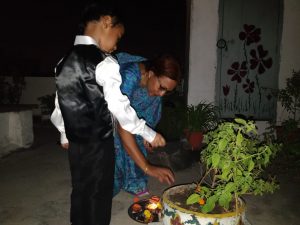

On the third day of the festival, which is the main Diwali, where Lord Ganesh and Lakshmi are worshipped. After completing the rituals, praying before the Tulasi plant is extremely important on Diwali day. Lighting a lamp in front of the plant evokes positive energies and removes negativities.
Additionally, consuming plant leaves is considered to have innumerable health benefits. The leaves can be taken alongside sweet offerings.
Prayer for the Mountain and Cow
The fourth day of the festival is called Govardhan Puja, which has two special significances related to bio-diversity.
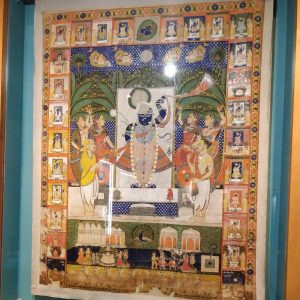

First, it commemorates the incident where Lord Krishna lifted the Govardhan Hill to provide shelter from heavy rains that fell upon the villagers of his town.
Second, the day also celebrates cows, which is also related to Lord Krishna, who used to call himself Gopal or the one who raises calves.
Cows and bulls graze grass on the mountain and provide milk to the people. Hence, it is a reason for people to celebrate nature, for providing all the necessary things required for sustaining life.
Devotees worship Govardhan hill, symbolically made using cow dung and decorated with flowers. People also offer to pay respect to the cows for being a food source and helping in agriculture.
Diwali is an occasion to celebrate Mother Nature.
Despite any symbolism, the festival is an important occasion that marks the victory of light over darkness, knowledge over ignorance, and good over evil.
Climate change and environmental destruction are some of the worst evils modern societies face today; let us all strive for a safe environment, a decluttered lifestyle, and respect for Mother Nature.

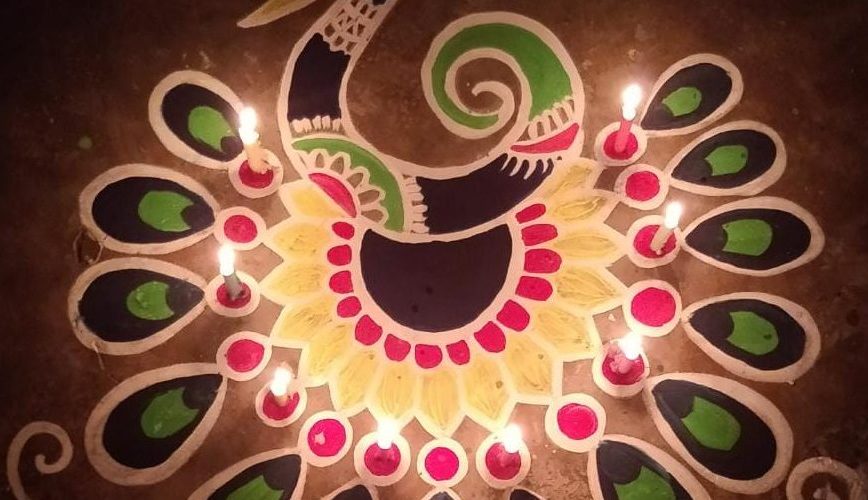
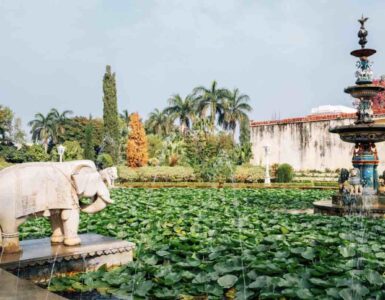
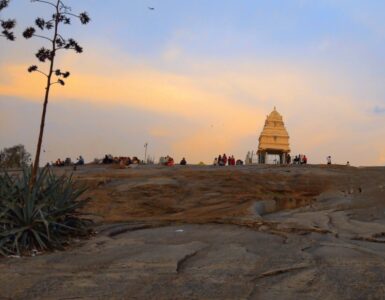



Add comment